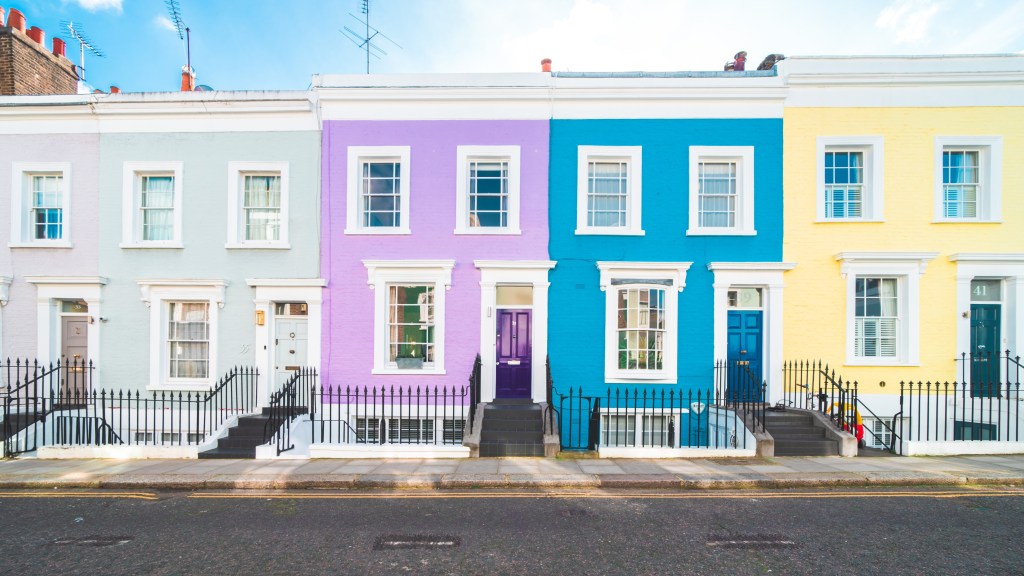Challenges Persist for First-Time Buyers Despite Lower Mortgage Rates
First-time buyers continue to face significant hurdles as property prices rebound, making homeownership increasingly out of reach. According to the estate agency Savills, last year marked the most challenging period for aspiring homeowners since 1986, primarily driven by elevated mortgage rates.
UK Finance, a trade association, reports a staggering 22 percent decline in the number of first-time buyers in 2023, with 287,000 individuals purchasing homes, a drop from 370,000 in 2022.
Although conditions have seen some improvement this year, Savills highlights that the average price for first-time buyers has risen for the sixth consecutive month, reaching a record £242,789, surpassing the previous high of £241,900 recorded in September 2022.
After experiencing two years of stagnant housing demand due to high inflation and escalating mortgage rates, compounded by market turbulence following the Conservative government’s mini-budget in September 2022, property prices are once again on the rise.
To purchase the average first home, buyers will need to save approximately £24,279 for a 10 percent deposit. Many prospective buyers are compelled to save even more, as certain lenders maintain stringent affordability criteria for mortgages involving smaller deposits.
Obstacles in Home Buying
Last year, the average house price in England was 8.3 times the average salary, while in Wales, it stood at 6.1 times the average salary.
A recent survey conducted by the Building Societies Association (BSA) revealed that 63 percent of respondents identified mortgage payment affordability as a significant barrier to home buying. Moreover, 62 percent of the 2,016 participants indicated that accumulating a sufficient deposit posed a challenge.
Although mortgage rates have decreased following a reduction in the Bank of England’s base rate from 5.25 percent to 5 percent last month, they remain insufficient to compensate for the rising house prices.
For instance, purchasing an average property priced at £242,789 in July with a 10 percent deposit necessitated a loan of £218,510 at a 90 percent loan-to-value (LTV) ratio. A 25-year mortgage at 5.64 percent, which was the average rate at that time, would have resulted in monthly repayments of £1,360.
In contrast, had the purchase occurred in January when the average two-year fixed rate at 90 percent LTV was lower at 5.44 percent, the monthly payments would have been approximately £1,277. Buyers who acquired the average property in July 2022 would have enjoyed significantly lower payments of £1,101 on a loan of £215,607, based on an average two-year rate of 3.69 percent.
The burden of high mortgage repayments for first-time buyers has only been surpassed twice: shortly after the mini-budget chaos and again in August 2023 amidst persistent inflation concerns, following the impact of Russia’s invasion of Ukraine that triggered soaring energy prices.
While house prices have risen—averaging £223,562 for first-time buyer homes in December 2021—the prevailing low interest rates at that time facilitated more manageable mortgage payments. A mere 39 percent of respondents in a BSA poll from December 2021 cited mortgage repayments as a barrier to homeownership.
Those attempting to buy independently face unique difficulties. Savills indicates that 57 percent of first-time buyers received assistance from family members last year, an increase from 46 percent in 2022, marking the highest level of familial support since 2012. The agency estimates that 54 percent of first-time buyers this year will likewise depend on contributions from family.
Paul Broadhead from the BSA stated that the average deposit expected from first-time buyers is now around £60,000—160 percent higher than the £23,300 required in 2005, while wages have increased by significantly less over the same period.
“For those without familial support, the aspiration of homeownership may remain unfulfilled. Even with recent decreases in mortgage rates, the specter of a generation potentially stuck as lifetime renters looms large,” Broadhead remarked.
The most competitive mortgage rate available for first-time buyers at a 90 percent LTV is currently 4.49 percent, offered by Virgin Money, with the average rate at 5.53 percent. Across the entire market, the average mortgage rate sits at 4.81 percent.
To enhance their savings for a deposit, buyers might consider utilizing a Lifetime ISA, allowing for annual contributions of up to £4,000, supplemented by a 25 percent government bonus when the funds are employed towards a first home purchase.
Lenders are also providing tailored solutions. Yorkshire Building Society is set to offer 99 percent mortgages to select borrowers, contingent on meeting certain requirements, while Skipton Building Society presents mortgages up to £600,000 with zero deposit needed for clients demonstrating a history of 12 months of consistent rent payments.
Furthermore, Nationwide Building Society is expanding its Helping Hand mortgage initiative to enable first-time buyers to borrow up to six times their income (increased from 5.5 times) if they provide a 5 percent deposit, contingent on opting for a five or ten-year fixed mortgage deal.




Post Comment